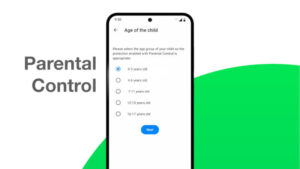M. G. Siegler is right. Android is not as open as many of us would like, at least for the user. But while it’s certainly not as open as any garden-variety Linux distro, it’s certainly much more open than the norm for Linux embedded on a device – and let’s face it, an Android smartphone is nothing but an embedded device. The functionality of your device is determined not by you the user, but by a combination of the handset maker and the carrier. According to Siegler, that needs to change – and I agree.
In case you missed the article, Android Is As Open As The Clenched Fist I’d Like To Punch The Carriers With, which appeared last Thursday on TechCrunch, Siegler has a variety of complaints about Android handsets, beginning with one that will be very familiar to anyone who’s ever bought a computer from Dell with Windows preinstalled:
“Case in point: the last couple of Android phones I’ve gotten as demo units from Google: the EVO 4G and the Droid 2, have been loaded up with crapware installed by the carriers (Sprint and Verizon, respectively). Apple would never let this fly on the iPhone, but the openness of Android means Google has basically no say in the matter. Consumers will get the crapware and they’ll like it. Not only that, plenty of this junk can’t even be uninstalled. How’s that for ‘open’?”
Oh, I forgot to mention, Siegler is a confirmed Apple fanboy, at least where the iPhone is concerned.
But he makes a point. And he makes others as well. Like the fact that some carriers are opening their own app stores and designing their phones so their expensive stores are easy to use and Google’s cheaper, sometimes free, store is nearly impossible to find. Or that features, like tethering, that are built-in to Android are often disabled when a carrier doesn’t want you to use the feature. The list goes on and on.
It’s enough to make an open source follower decide that Stallman is right – only draconian measures like the GPL3 will keep the nasty capitalists from usurping open products and making them for all intents and purposes proprietary. Maybe we need to come-up with some kind of new open source manifesto regarding the smartphone. After all, the smartphone is more computer than telephone. Indeed, it’s basically a computer that can make phone calls. Just as you should have total control over the functionality of your desktop or laptop, shouldn’t you have complete control over your computer phone?
Christine Hall has been a journalist since 1971. In 2001, she began writing a weekly consumer computer column and started covering Linux and FOSS in 2002 after making the switch to GNU/Linux. Follow her on Twitter: @BrideOfLinux







